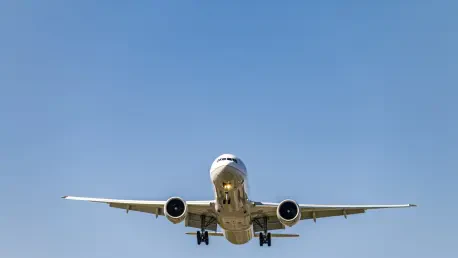In an era of heightened environmental consciousness, Thailand has emerged as a trailblazer in the sustainable aviation fuel (SAF) sector. The nation has been at the forefront of developing innovative solutions to reduce carbon emissions associated with air travel. Central to this progress is Bangchak Corporation, which unveiled a vast plant dedicated to producing SAF from used cooking oil in Phra Khanong. This facility exemplifies Thailand’s determination to curb aviation-related emissions and demonstrates a tangible commitment toward achieving the global aviation sector’s 2050 net-zero emissions target. At the forefront of this effort is the recent forum, “Flying Green: Thailand’s Sustainable Aviation Fuel Forum,” underscoring the country’s commitment to sustainable aviation.
Overview of the Sustainable Aviation Fuel Industry
The sustainable aviation fuel industry is witnessing significant changes, driven by the growing demand to reduce aviation’s carbon footprint. SAF is increasingly recognized as a viable solution to meet this demand due to its ability to lower greenhouse gas emissions compared to conventional jet fuels. Current technologies and market players are pushing boundaries in creating more efficient, cost-effective, and environmentally friendly fuel options. Companies like Bangchak Corporation are leading in establishing dedicated facilities for SAF production, positioning themselves as key influencers in this transformative era.
Regulatory frameworks are crucial to the industry’s development, with governments and international bodies setting aggressive targets to reduce emissions. These regulations not only facilitate innovation but also cement the industry’s importance in achieving global climate goals. Sustainability standards and compliance ensure the industry’s alignment with international expectations, amplifying its significance within the broader aviation ecosystem.
Current Trends and Market Dynamics
Primary Trends Shaping the Industry
Technological advancements are crucial to the evolution of SAF. Innovative methods for converting feedstock like used cooking oil are paving the way for more sustainable production processes. As awareness grows, consumer behaviors are shifting, driving increased demand for green aviation options. This demand presents an array of opportunities, with emerging technologies promising a sustainable future for the aviation industry.
Analyzing the market dynamics, there’s a noticeable shift toward cleaner fuels, heavily influenced by regulatory pressures and consumer awareness. These drivers are reshaping market strategies, offering new pathways for industry players to capitalize on the green revolution. As more technologies enter the landscape, the potential for growth within the SAF sector continues to expand.
Market Data and Growth Projections
Market data indicates a burgeoning SAF industry characterized by improved performance indicators and optimistic growth figures. With facilities like Bangchak’s setting industry standards, projections suggest a continued upward trajectory. Growth statistics reveal a promising future for SAF, bolstered by both local and international investments aimed at fulfilling sustainability targets.
Forecasts highlight an accelerated pace of SAF adoption, anticipated to substantially increase by the end of the decade. Industry players are poised to capitalize on this growth, as collaborations between governments and companies pave the way for strategic expansions and advancements.
Challenges and Barriers to Industry Growth
The sector faces technological, regulatory, and market-driven challenges that could hamper its evolution. High production costs and limited feedstock availability remain significant hindrances. However, strategic partnerships and innovations in technology present viable solutions for overcoming these obstacles. Collaborative efforts are necessary to propel the industry past its current limitations and foster resilience against unforeseen market shifts.
Addressing regulatory complexities requires a comprehensive approach where industry stakeholders advocate for supportive policies, secure government incentives, and foster a robust research and development environment. Such strategies are essential to navigate the complexities and ensure sustained growth.
Regulatory Environment and Industry Impact
The SAF industry operates under strict scrutiny, with significant laws and standards continuously evolving. These regulations are instrumental in shaping industry practices, promoting consistency with international standards, and reinforcing the global agenda for emission reduction. Compliance is paramount, with adherence ensuring that SAF development aligns with international best practices.
Moreover, security measures are vital, providing assurance that SAF production and distribution systems are protected against potential risks. Effective regulatory frameworks impact not only operational practices but also the strategic direction of key industry players.
Future Directions and Emerging Opportunities
Looking ahead, the SAF industry is positioned at a transformative juncture. Emerging technologies and potential market disruptors present lucrative opportunities for growth. As consumer preferences shift toward sustainability, companies that adapt swiftly are likely to see significant returns. Economic conditions, alongside regulatory shifts, will continue to influence the trajectory of SAF’s development.
Innovation will remain a cornerstone of future advancements, driving cost-effective solutions while meeting environmental benchmarks. Collaborative global efforts and investment into research promise to unveil new growth corridors, reinforcing Thailand’s pioneering status in the SAF domain.
Conclusion and Strategic Outlook
The report highlights Thailand’s impressive strides in SAF development, driven by commitments from key players like Bangchak Corporation. The industry, despite facing challenges, is set for substantial growth as technology evolves and regulatory support strengthens. Strategies focusing on collaborative efforts, investment in innovation, and robust compliance frameworks will be crucial for sustained advancement.
Future efforts should concentrate on enhancing production capacities, securing sustainable feedstock, and fostering partnerships across sectors. The pursuit of cleaner skies is not solely a national agenda but a global imperative, with Thailand leading the charge toward a more sustainable aviation future.









